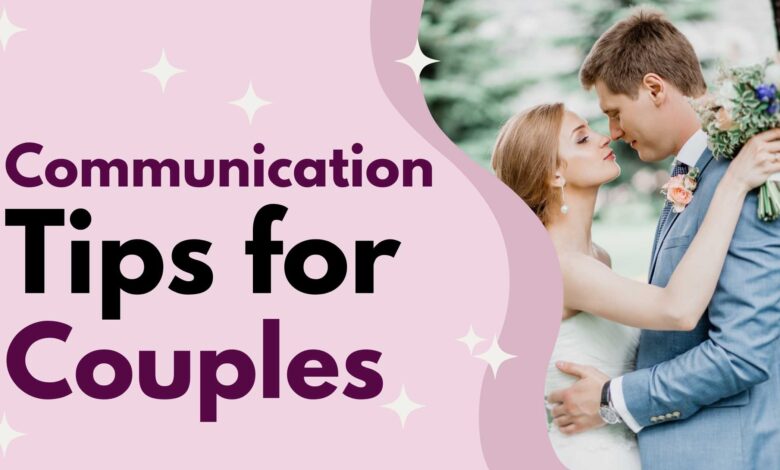Navigating Relationships: Communication Tips for Couples

Communication is the foundation of all healthy relationships, the foundation for understanding, trust, and intimacy. Good communication can help couples overcome problems, solve problems and strengthen their relationship. This article explores important communication skills for couples to strengthen their relationship and cultivate a deeper and more understanding relationship.
Practice Active Listening
Active listening is an essential aspect of effective communication in a relationship. This includes listening carefully to your partner’s words, thoughts and feelings without judging or interfering. When your partner is speaking, pay attention to them, maintain eye contact, and don’t frame your responses while they are speaking. Instead, focus on understanding their perspective, empathizing with their feelings, and validating their experiences. Repeat what they said to make sure you understand it correctly, and ask clarifying questions if needed. By practicing active listening, you can show respect, love, and a genuine interest in understanding your partner’s point of view.
Expressing Yourself Clearly and Confidently
Effective communication in relationships also involves expressing yourself with confidence. Express your thoughts, feelings and needs honestly and clearly, avoiding any form of negative-aggressive or manipulative communication. Use “I” statements to express your feelings and maintain your boundaries, rather than accusing or criticizing your partner. For example, instead of saying, “You always bother me,” try saying, “I don’t care if we don’t spend time together.” Be aware of what you need from your partner and offer helpful suggestions on how he can support you. Through communication, you can increase openness, honesty, and respect in your relationships.
Develop Compassion and Understanding
Empathy is essential to improving emotional connection and intimacy. Put yourself in your partner’s shoes and try to understand their thoughts, feelings and experiences from their perspective. Validate their feelings and show them love and support, even if you don’t agree with them. Avoid belittling and ignoring your partner’s feelings, as this can lead to anger and alienation from the relationship. Instead, acknowledge her feelings and reassure her that they are valid and important to you. By cultivating love and understanding, you can create a safe and supportive environment where both parties feel heard, valued, and appreciated.
Use Conflict Resolution Strategies
Conflict is inevitable in any relationship, but how a couple handles it can affect the health and longevity of their relationship. Instead of avoiding conflict or using negative communication patterns such as blaming, blocking, or staying silent, couples should use conflict resolution strategies. Fix problems first as they arise, rather than letting them fester and fester over time. Use “I” statements to express your concerns and needs instead of attacking or criticizing your partner. Be willing to listen to colleagues’ perspectives and seek common ground through compromise and negotiation. Focus on finding effective solutions and respect their feelings and needs. By resolving conflicts with love, respect, and cooperation, couples can strengthen their relationship and get to know each other better.
Schedule Entries From Time to Time
Regular check-ins are important to keeping relationships healthy and connected. Set aside time to discuss your relationship, including your feelings, goals, and any questions or concerns that may arise. Use this time to share your thoughts and experiences openly and honestly, without fear of judgment or criticism. Think about what aspects of your relationship are going well and identify areas where you can improve and grow together. Be proactive in resolving issues and problems that arise, rather than letting them fester or fester over time. By establishing regular communication and checking in, couples can grow their relationship and build a strong foundation for long-term happiness and satisfaction.
Conclusion
Good communication is essential to building and maintaining healthy and positive relationships. By practicing active listening, communicating clearly and confidently, developing empathy and understanding, using conflict resolution strategies, and setting up regular check-ins, couples can improve their communication skills and building relationships with each other. By engaging in open, honest, and respectful communication, couples can overcome challenges, resolve conflicts, and deepen relationships, building relationships built on trust, relationship, and mutual respect.




